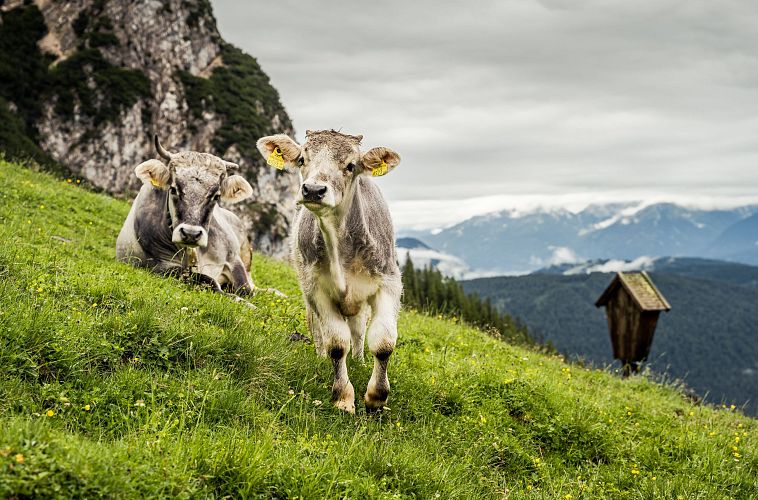
ETIQUETTE FOR DOG OWNERS
Rules of conduct & important information
The Region Seefeld is not only a paradise for our two-legged guests, but also for their four-legged friends. To ensure that your stay in our picturesque surroundings remains pleasant, unforgettable and, above all, conflict-free for you, your faithful companion and all other guests, we have put together the most important rules of conduct, tips and information for all dog owners on the subject of "Holiday with a dog". Whether it's walks through the idyllic countryside, exciting hikes or relaxing hours in the hotel - we want you to be able to enjoy every moment without any worries.
General rules
- Dogs Must Be Kept on a Leash: Throughout the entire region, including all hiking trails, dogs must be kept on a leash. The only exceptions are the designated off-leash areas along the Leutascher Ache river and the Moos dog exercise area.
- Disposing of Dog Faeces: Always collect dog faeces in a bag and dispose of it in the provided bins. Free dog waste bag dispensers and rubbish bins are available throughout the region.
- Dogs Must Be Muzzled: On public transport dogs must wear a muzzle.
- Path Rules: To protect vegetation and prevent erosion, please stay on designated paths.
- Keep Control: Keep your dog under control and on a short lead at all times. Ensure he remains calm around other people and animals. IMPORTANT: In the event of an imminent attack by grazing animals, immediately release your dog from the leash. For more information on dealing with grazing animals, click here.
Tips
- Water and Food: Always ensure you have enough water and food, especially on longer hikes.
- Equipment: A good dog leash and a suitable collar are essential. For a comprehensive packing list, take a look at: Packing List for a Dog Holiday in the Mountains.
- Practice Encounters: Practice with your dog how to react calmly and in a controlled manner to encounters with other hikers or animals. You can also seek support from the Tyrol Dog School.
- Health Protection: Ensure your dog is vaccinated and protected against ticks and other parasites.
Important Information
- Spring Water Fountains: There are spring water fountains in the region where owners and dogs can refresh themselves.
- Free Transport: Dogs are transported free of charge on public transport in the VVT area (Tyrol).
- New Year's Eve: There are no official firework displays organised by local councils or the tourism association on New Year's Eve. However, many hotels organise their own firework displays.
- Hiking in Winter: No salt is used to grit the hiking trails, but grit may be applied on icy or steep sections. To protect your dog's paws in winter, consider using creams, care products, and, if necessary, special dog shoes.
- Keeping Listed Dogs in Tyrol: For the latest rules and regulations on keeping listed dogs in Tyrol, please visit the official page: Listed Dogs in Tyrol.
FOR YOUR SAFETY


